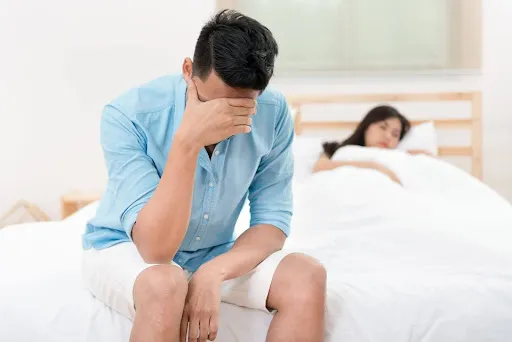Human Papilloma Virus (HPV) is a virus that can be transmitted from person to person, via skin contact. There are over one hundred unique strains of the disease, and it is the most common sexually transmitted disease (over 40 different strains can be sexually transmitted). This is a disease that can be found in both men and women and can have fatal consequences in some cases, if not treated.
How Is HPV Transmitted?
HPV is transmitted via unprotected sex, and can also be transmitted through skin to skin contact, depending on the strain. Genital warts are transmitted sexually, but there are also other forms of warts that can be caused by HPV. These are found in other areas of the body and can be transmitted through touch. It's important to remember that it is still possible to contract HPV from someone who does not display any symptoms. You may also give it to others, without even knowing that you have it.What Are the Symptoms of HPV?
Over half of the men who experience HPV will not have any noticeable symptoms, and it will not cause poor health in any way. Most people who contract the virus never even know that they have it. One of the main visible symptoms of HPV in men is warts. These can be around the genital area, in the throat/esophagus, on hands and feet, or around the mouth/beard area. Different types of warts are caused by different strains of the HPV virus, and not all of these are caused by sexual transmission. One of the other symptoms of HPV is cancer. In males, this manifests as cancer of the penis, anus, or esophagus/oropharyngeal cancer. HPV does not directly cause these kinds of cancers, but it creates changes in the body that lead to cancer. This is a relatively rare symptom of HPV and only occurs when the infection does not go away on its own. It also takes years for cancer to develop, making it difficult to associate with a specific HPV infection.How Common Is HPV in Men?
HPV in some form is incredibly common in both men and women. There are approximately 79 million people in the United States currently living with it, mostly young adults. Almost every sexually active person will contract it at some point in their life, but not all will display visible symptoms. It's possible to be infected (and infect others) without ever knowing. Cancers caused by HPV are not common in men - this is an incredibly rare symptom. Men with already-weakened immune systems (from health conditions such as HIV/AIDS) are at greater risk of developing cancers caused by HPV. Men who receive unprotected anal sex are also more likely to experience anal cancer caused by the virus.Can I Be Tested For HPV?
There is currently no way to test for the presence of HPV in men (this has only been approved for women). Due to the fact that the majority of HPV cases go away on their own, you shouldn't be too worried. It's always a good idea to practice safe sex to reduce your risk of receiving or transmitting HPV, regardless of whether you think that you already have it or not. Although men cannot be tested for HPV directly, there are ways to test for HPV symptoms, such as genital warts and different types of cancers. If you begin to experience warts on/around your genitals, or symptoms that appear to be early stages of cancer (of the penis, anus or esophagus), let your doctor know immediately. They will be able to provide the necessary testing for these conditions.Can HPV Be Cure?
In many cases (approximately 90%), HPV will go away on its own within 2 years, with no treatment or medical interference required. There is no known cure for the HPV virus, but its symptoms can be managed. If you are experiencing genital warts, your healthcare provider can offer you prescription medication to get rid of them. If you are experiencing any form of HPV-related cancer, then this can also be treated accordingly. You should make an appointment to see your doctor as soon as you are experiencing any of these symptoms. Although most forms of HPV will go away on their own, you can be left with lifelong health issues in some cases if you are experiencing symptoms and do nothing. You should also note that it's possible to contract more than one form of HPV. Just because you have experienced HPV once, does not mean you are safe from all forms. You should still take precautions, especially when engaging in sexual activity, to ensure that you do not get HPV again. If you have a weakened immune system, you are far more susceptible to contracting different strains.How Do I Prevent Myself From Getting HPV?
One of the best ways to ensure you stay safe from HPV is to get vaccinated. There is an HPV vaccine (Gardasil 9) that is approved by the CDC and the FDA, and it helps to prevent cancers and warts caused by HPV. It is recommended that you receive these vaccinations before you start having sex (to avoid any potential contact with the disease). The HPV vaccination is recommended for men up to the age of 26. The vaccine is not recommended for people over 26 because it is likely that they will have already been exposed to the disease. If you are older than this but are still concerned about contracting the disease, talk to your healthcare provider, who will help you decide if it is the right choice for you. One of the easiest ways to prevent exposure to HPV is to always practice safe sex, and use condoms. Limiting your sexual partners as much as possible will also help to reduce your chances, as multiple sex partners is a significant risk factor People with one stable sexual partner are far less likely to get HPV than people who engage in sexual activity with multiple partners.Related read: Sexually active? You need to know about this Silent Virus - HPV
About the Author
This article is written by Dev Chaudhary. Dev Chaudhary is a creative content writer and blogger with more than 7 years of experience in content writing in different topics likes health, travel, education, business. But health and lifestyle are his favorite. You can find his articles on Ezine, Delhi-magazine, selfgowth.com etc.
Reviewed by







